| In case you haven't read ON GROUNDS OF HONOR, a historical fiction novel set in Centreville, Maryland during the Civil War, I thought I'd share the Prologue with you to pique your interest. It is the first of a two book series about a family with two brothers who, like so many families in Maryland, find themselves on opposite sides of the war. ON GROUNDS OF HONOR: Prologue April 15, 1861 Centreville, Maryland Jeremiah Turner deftly managed the wooden handles of the plough, the leather reins leading the mule looped over his right shoulder and around his neck. The loamy smell of freshly tilled earth drifted on the spring breeze, cooling his brow beneath the wide brimmed hat. Behind him trailed the slave, Henry, pausing to plant golden corn kernels at the appropriate intervals and cover them over with a layer of soil. |
Suddenly a cry sounded behind him, and Jeremiah jerked his head to see his younger brother riding hell-bent up Turners Lane, flying at breakneck speed past the stately white edifice of Laurel Hill. Bringing the mule to an abrupt stop, Jeremiah watched Charlie gallop the buckskin gelding toward him, black mane waving like a banner in the wind.
Old Joe, at the other end of the field, followed Jeremiah’s lead and halted his mule-drawn plough. Eli, his eldest son, likewise stilled his work at planting. Behind him, driving a wagon loaded with a tub of water and a siphon to spray the freshly planted corn, the boy Silas also came to a stop.
In a smooth, athletic leap, Charlie vaulted to the ground, waving a newspaper wildly over his head. His hat fell to the ground, sandy brown hair tumbling into his blue eyes as he held tightly to Buck’s reins, snorting and prancing from the run.
“It’s happened!” Charlie cried. “The Rebels have taken Fort Sumter! The President’s calling for seventy-five thousand men to volunteer to stop them!” he gasped, breathless from the excitement as much as from the wild ride.
Their father, Francis Turner, supervised the planting from his perch atop the chestnut mare. A man as broad through the shoulders and thick through the chest as any man half his age, Francis studied his youngest son beneath thick white eyebrows which sprouted in as many directions as weeds in a fallow field. His blue eyes were solemn as he rubbed a weary hand over his face and lowered his head.
“I’d hoped this day would never come,” his voice was hoarse with regret as he spoke.
“What are we going to do?” Jeremiah queried, removing the reigns from his neck and stepping forward as he searched his father’s tired eyes.
Francis shook his head resolutely. “We will wait and hope Lincoln can crush this rebellion without help from my sons.”
“I hope he can’t,” Charlie retorted, the newspaper crinkling in his hand as he clenched his fist passionately. “We fought Britain to be a free country only to have Lincoln trample our Constitution. I say Godspeed the Rebels and may they make it a free country once again!”
“Stop such traitorous talk and help your brother with the planting,” Francis snapped. “I’ll take that,” he extended his right hand to accept the newspaper, waving his left hand at Jeremiah to resume his work.
Charlie handed over the Centreville Times obediently, but his blue eyes flashed as he declared, “I think you and Lincoln have both underestimated the Confederacy. This isn’t just a band of rebels causing trouble. They aren’t going to be easily defeated.”
“Time will tell,” Francis answered quietly.
Straightening, Jeremiah leveled his dark eyes on Charlie. “You want to join this rebellion? Do you really think it wise to sting a slumbering giant?” His eyebrows, black as a crow’s wing but just as unruly as his father’s, drew together in challenge.
“Better to sting the giant than to be trampled under its feet!” Charlie glowered at his older brother. “There’s always a price to freedom!”
Jeremiah draped the reins over the wooden handle and stomped angrily toward his brother. “You’re not seeing the whole picture, Charlie! If Maryland sets herself against the Federal Government, we’ll lose everything we have!”
“So you would just give in to the tyrant, instead of fighting for what’s right?”
“Peace!” Francis cried, placing himself between his two sons just as he had positioned himself between the two factions at town meetings many times before.
He clenched his fists and barked out the word once more: “Peace! How many times must we fight for it before it is finally ours to keep? Peace must not be lost at every disagreement, but carefully guarded as something fragile and prized. We must learn to compromise! The only thing standing in the way of peace is man’s pride and stubborn ego.”
Charlie side-stepped his father to glare at Jeremiah. “Well, if one man demands and the other complies, I don’t call that compromise. I call it tyranny.”
“Enough!” Francis nearly growled, his bushy white brows drawn together violently as he stared down first one son and then the other. “You, go take care of your horse,” he dismissed Charlie. To Jeremiah, he pointed to the plough. “Back to work.”
Jeremiah plodded through the thick black soil to take up his position behind the plough, snapping the leather reins on the mule’s rump and setting her into motion. He saw the belligerent glare his brother shot him from beneath the hat he shoved onto his head before swinging up onto Buck and riding toward the barn.
Behind him in the field, like shadows unnoticed by those whose eyes are not downcast to the ground, the slaves stood silently waiting for the signal to resume their labors.
(If you'd like to read more, ON GROUNDS OF HONOR is available in paperback at Amazon.com, on Nook and Kindle, and I'll be selling copies for Centreville Day at the Courthouse Green this Saturday, October 31st from 9:00 to 3:00.)
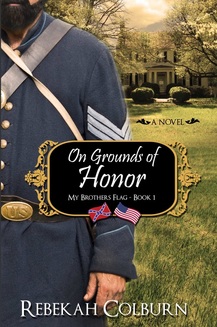
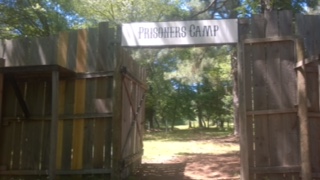
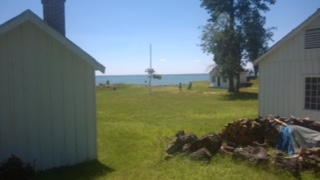
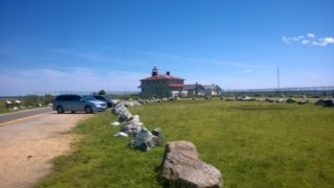

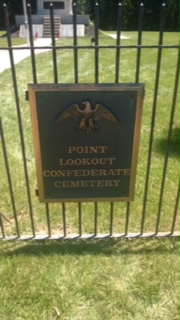
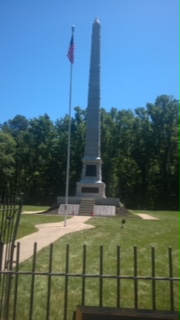
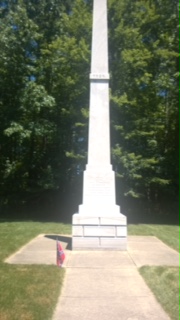
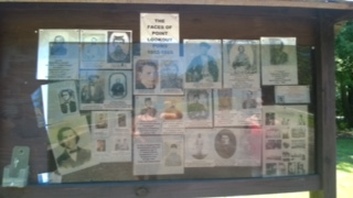
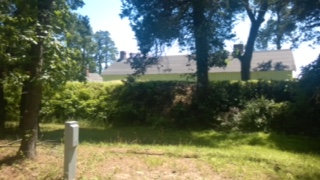
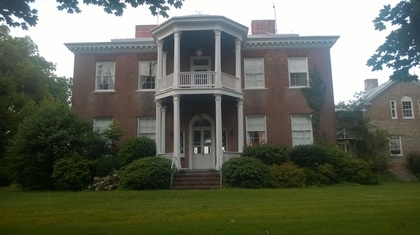
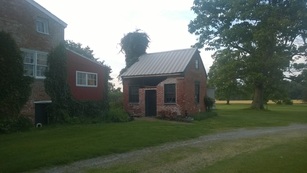

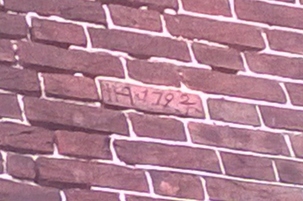
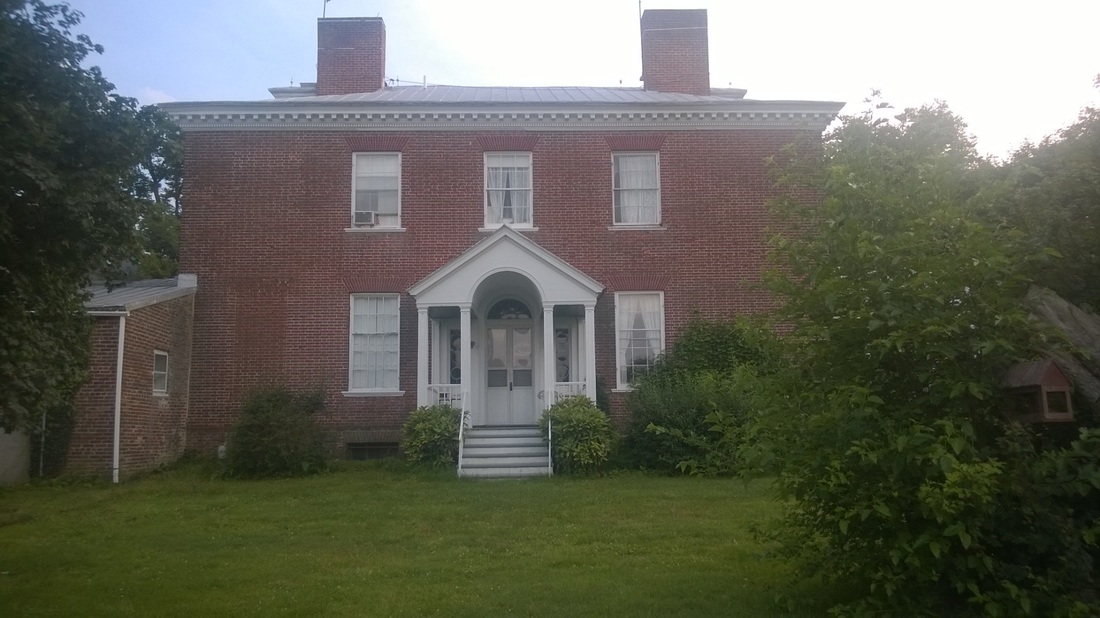
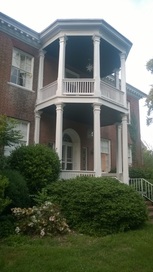
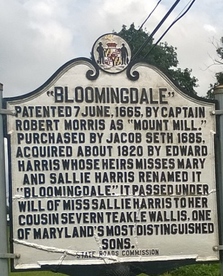
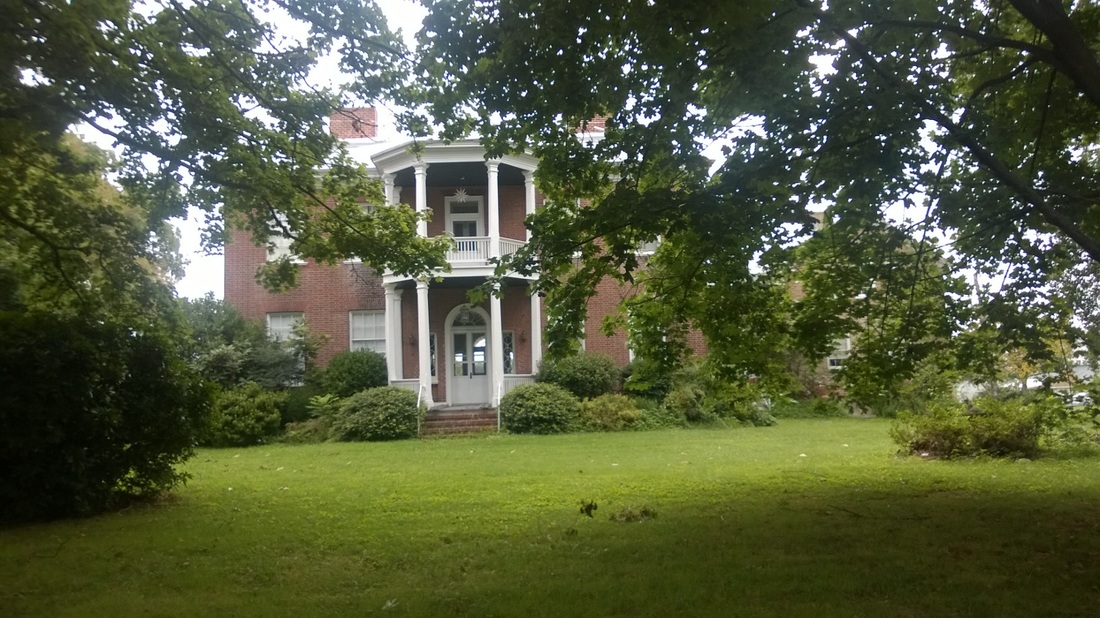

 RSS Feed
RSS Feed